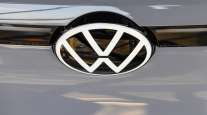Senior Reporter
California Gov. Newsom’s Spending Plan Includes $10B for EVs

[Stay on top of transportation news: Get TTNews in your inbox.]
Aiming to end the sales of internal combustion engines in California in coming decades, Democratic Gov. Gavin Newsom on Jan. 10 made public his proposed $286 billion spending plan for 2022-23 that calls for a $10 billion investment over the next six years to put more electric cars and trucks on roadways and in ports.
To combat climate change, one of his five major focuses, Newsom proposed funding for 1,000 new electric drayage trucks, 1,700 zero-emission transit buses, electric school buses and other zero-emission heavy trucks, as well as improving port electrification efforts. The plan also calls for an investment for 40,000 electric cars and 100,000 new charging stations.
“The investments will help maintain California’s role as the hub of zero-emission vehicles market creation and innovation, creating economic development opportunities, while accelerating zero-emission solutions in hardest-to-reach segments of the transportation system,” a budget summary said.

Tunnell
“The money’s great, but it’s just hard to know the details at this point,” said Mike Tunnell, American Trucking Associations’ California-based environmental researcher. “In the big picture, these types of funds help. But it’s just going to take a huge amount of private capital to make this happen.”
Calstart, a nonprofit industry consortium pushing zero-emission commercial vehicle adoption, called the funding plan a vital addition to California’s leading role in aggressively decreasing emissions from the transportation sector while supporting the growth of the clean transportation industry and jobs.
A focus on equity, in investment and opportunity, provides a model for other regions as they shape their clean transportation policy, Calstart said in a statement.
Oregon, Washington, New York, New Jersey and Massachusetts followed California in approving the Advanced Clean Truck rule late last year, requiring a growing percentage of all medium- and heavy-duty trucks sold to be zero-emission starting in 2025. Manufacturers must increase their zero-emission truck sales in those states to 30% to 50% by 2030, and 40% to 75% by 2035.
The industry is moving towards #ZeroEmission #BEVs for #MediumDuty and #HeavyEquipment #fleets – but there are challenges.
We examine the current state of the #battery #SupplyChain and share our insights for the future of US Commercial Vehicles.https://t.co/NvVKhkwhgp pic.twitter.com/Znxe1olIDB — CALSTART (@CALSTART) January 10, 2022
Jed Mandel, president of the Truck and Engine Manufacturers Association, said that his members already are making large investments in ZEVs. Rivian, Tesla and Daimler AG are developing tractor-trailers that can run hundreds of miles on a single battery charge.
California’s Advanced Clean Trucks regulation mandates, among other things, that 5% of all Classes 7-8 trucks sold in the state be electric or hydrogen fuel cell beginning in 2024. Under the plan, the percentage of medium and heavy electric trucks sold would increase each year, topping out at 40% annually from 2032 and beyond. The goal is to have all trucks sold be electric in 2045.

Boesel
“Gov. Newsom’s budget is akin to bringing in the cavalry in the fight to achieve climate goals and the effort to build the clean transportation industry,” Calstart CEO John Boesel said. “The funding that Gov. Newsom proposes supports the state’s strong regulatory approach by providing incentives for not only consumer and commercial fleet purchases, but also the funding needed to ensure we have the infrastructure in place to power this new generation of zero-pollution vehicle.”

Barbose
Jason Barbose, interim Western states director at the Union of Concerned Scientists, said in a statement: “With the impacts of a rapidly heating climate being felt throughout California, it is gratifying to see that Gov. Newsom recognizes the scale of the crisis by meeting the moment with investments in clean transportation and energy, while also helping workers adapt to an economy that can no longer be reliant on fossil fuels.
“Collectively, society failed to make adequate progress reducing heat-trapping emissions for more than 30 years. The next 10 years is the most consequential for the future of our planet, and Gov. Newsom’s proposed spending plan is the robust response we need to fight climate change.”
Want more news? Listen to today's daily briefing below or go here for more info:




